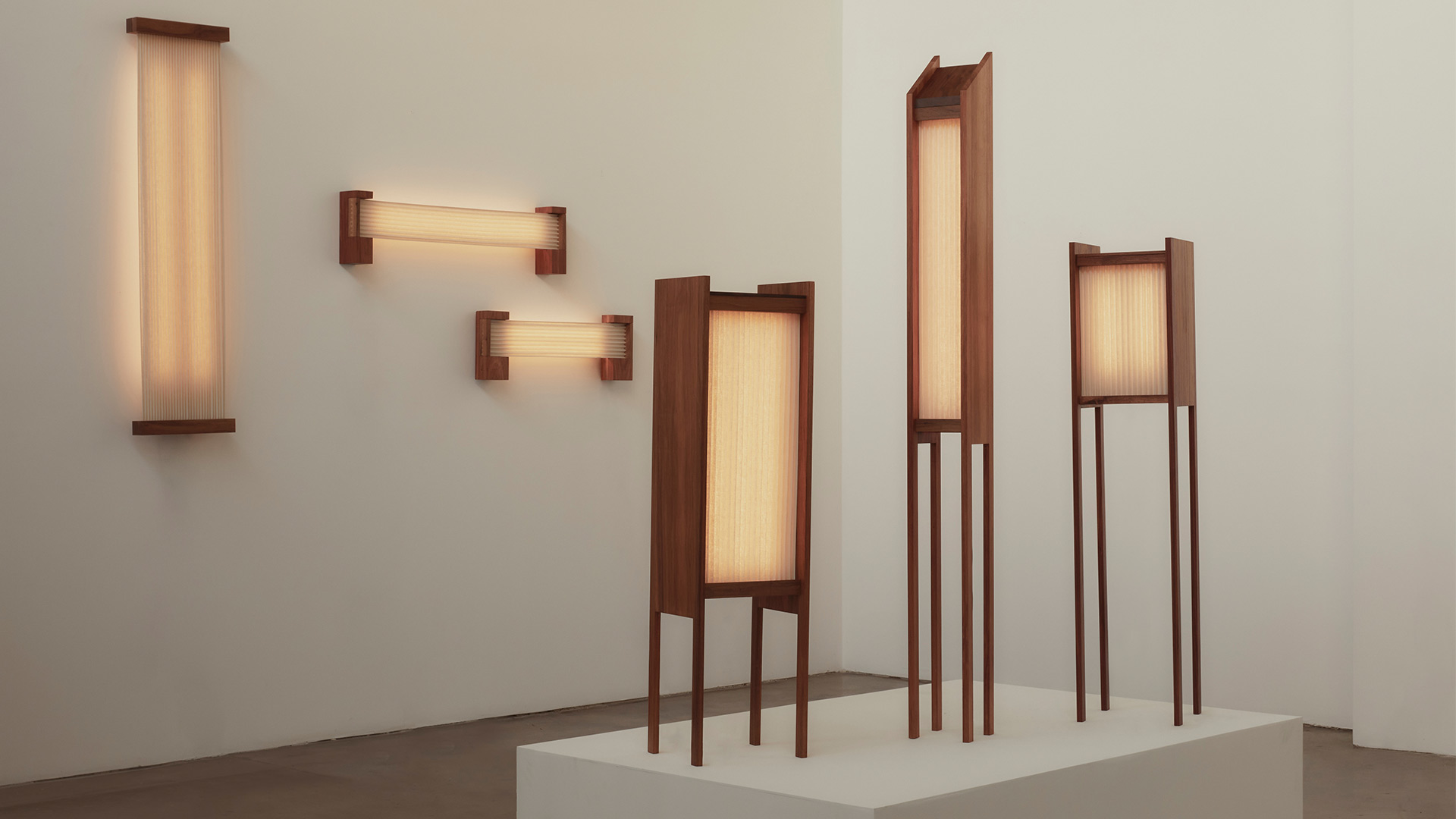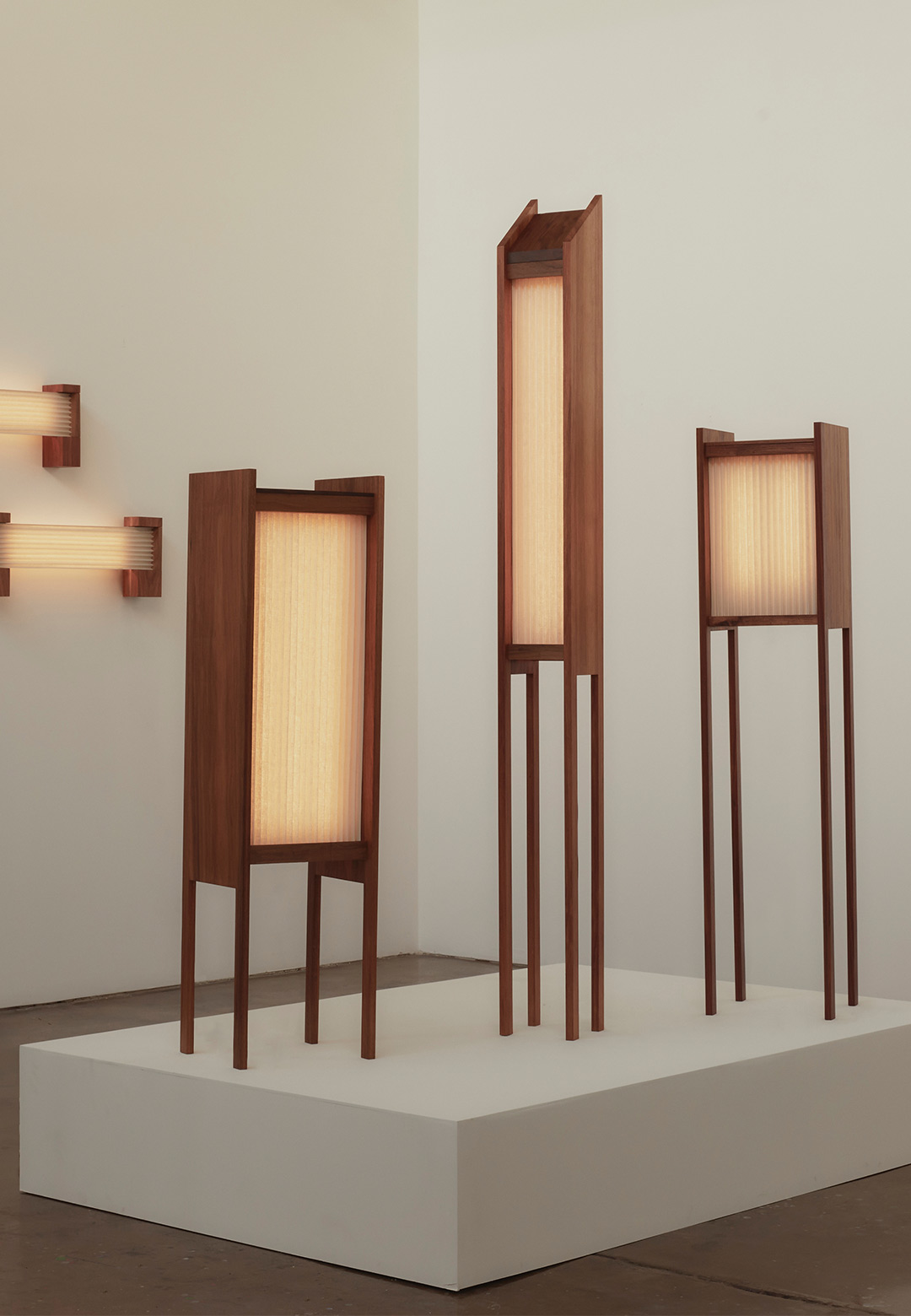Coco Flip is a Melbourne-based furniture and lighting design studio managed by Kate Stokes and Haslett Grounds, catering to 'design-conscious homes' worldwide. It was founded by the duo in 2010 to generate an engagement of contemporary design outcomes with local artisans and collaborative processes. Encouraging local craftsmanship automatically resulted in their oeuvre of character-led, rich designs. With their personality-filled furniture designs and lighting designs, they attempt to infuse spaces with a specific persona, sophistication, and warmth. To emphasise their participation in the larger Australian design conversation, the duo presented their collection LINEAR at the Melbourne Design Week which took place from May 18 - 23, 2023, in the capital of Australia.
"Starting from a place of curiosity, each piece begins with a seemingly simple thought or idea. Whether it’s working with a unique material or trying to imbue a specific personality into furniture, (we) enjoy working thoughtfully through the inevitable challenges that come with producing true quality. Each Coco Flip piece is designed sustainably, one at a time, and then produced in limited quantities. We’re honoured to see these pieces in the homes of those who share our appreciation of Australian design," share the creators based in Northcote, Australia.
For the design week, Coco Flip developed works underscored by experimentation and exploration, uncovering the potential of pleating in the modern design context. The product designers always begin with conscious curiosity toward a simple thought or idea, which also defined the history and legacy of pleating. In their design exhibition, they investigated this idea further with two questions—What is the value of our local artisan industry? and What stands to be lost when these industries are no longer viable?
In finding such rare traditional crafts, they came across ‘Specialty Pleaters,' a century-old pleating factory, the last one of its kind in Australia, due to the decline of the textile design industry in the country. Simon Zdraveski, the resident artisan pleater, is an expert at crafting pleats, whether it be by hand using paper moulds, or machine pleating fabric. His studio deliberates on a caring human touch for each piece of cloth that comes to them, working with smaller quantities to create lasting quality. This approach aligns with Coco Flip's practice to design sustainably, by working on objects in limited quantities, prioritising quality over quantity. “This project has been an opportunity for us to explore a more free creative process, outside the commercial constraints of product design,” relays Kate Stokes, founder and co-director of Coco Flip, reflecting on her design journey in the context of this project.
Elegant in their simplicity, the pieces from the collection delve into numerous apparatuses of clamping, hanging, and pinning pleats to create lighting sculptures. Linen, the fabric used by the wooden furniturefurniture designers, is an unconventional one for pleating—however, the materiality-inspired studio finds joy in working thoughtfully through challenges that come with wanting distinctive products, bleeding into an unorthodox choice of material as well. Linen offered the delicacy and translucence that was necessary for the warm, dusk-like glow that was desired for the products. These pleated fabrics, when attached to the reclaimed wood frameworks, produced modernist architecture-inspired designs that emphasised material interaction and contrast, elevated further with the elegance of the pleats. The resulting aesthetic of the wooden furniture automatically draws one to the wispy radiance allowed by the painstakingly manipulated fabric, inevitably inviting curiosity towards the craft and product at hand.
Accompanying the pieces at the annual, 11-day design event was a documentary explaining Coco Flip’s collaborative and meticulous approach to working alongside local craftspeople, and taking inspiration from their traditional methods of production and creative processes while sharing a deeper insight into the history of Melbourne's last remaining pleating factory.
(Text by Aatmi Chitalia, intern at STIR)






 Sign in with email
Sign in with email










What do you think?